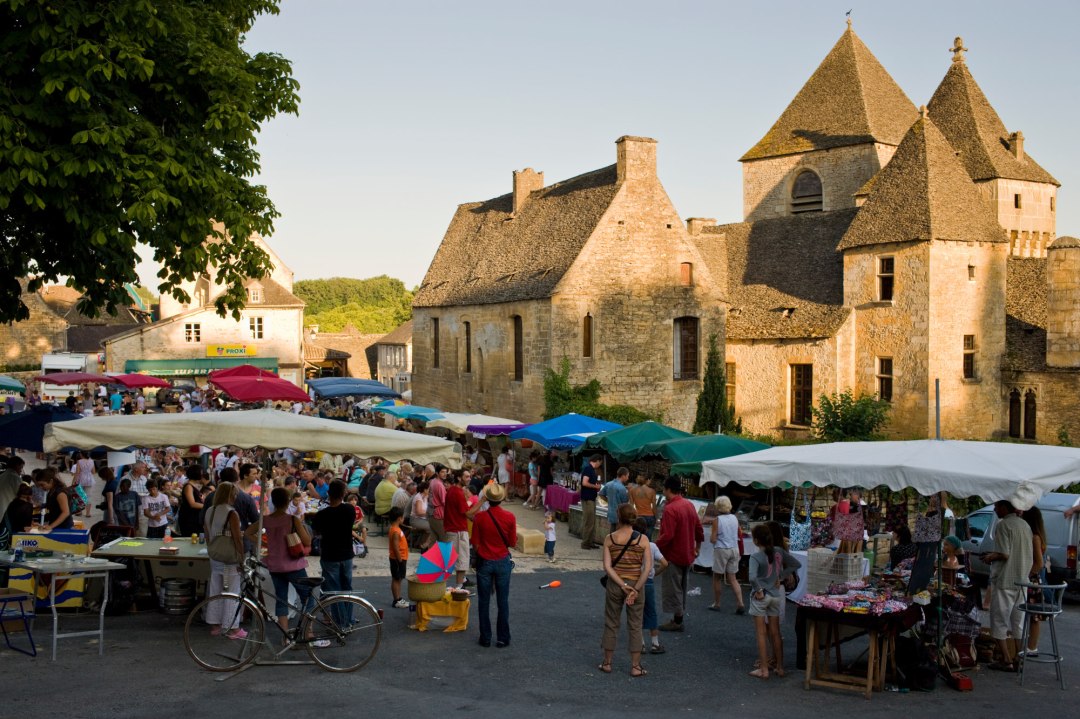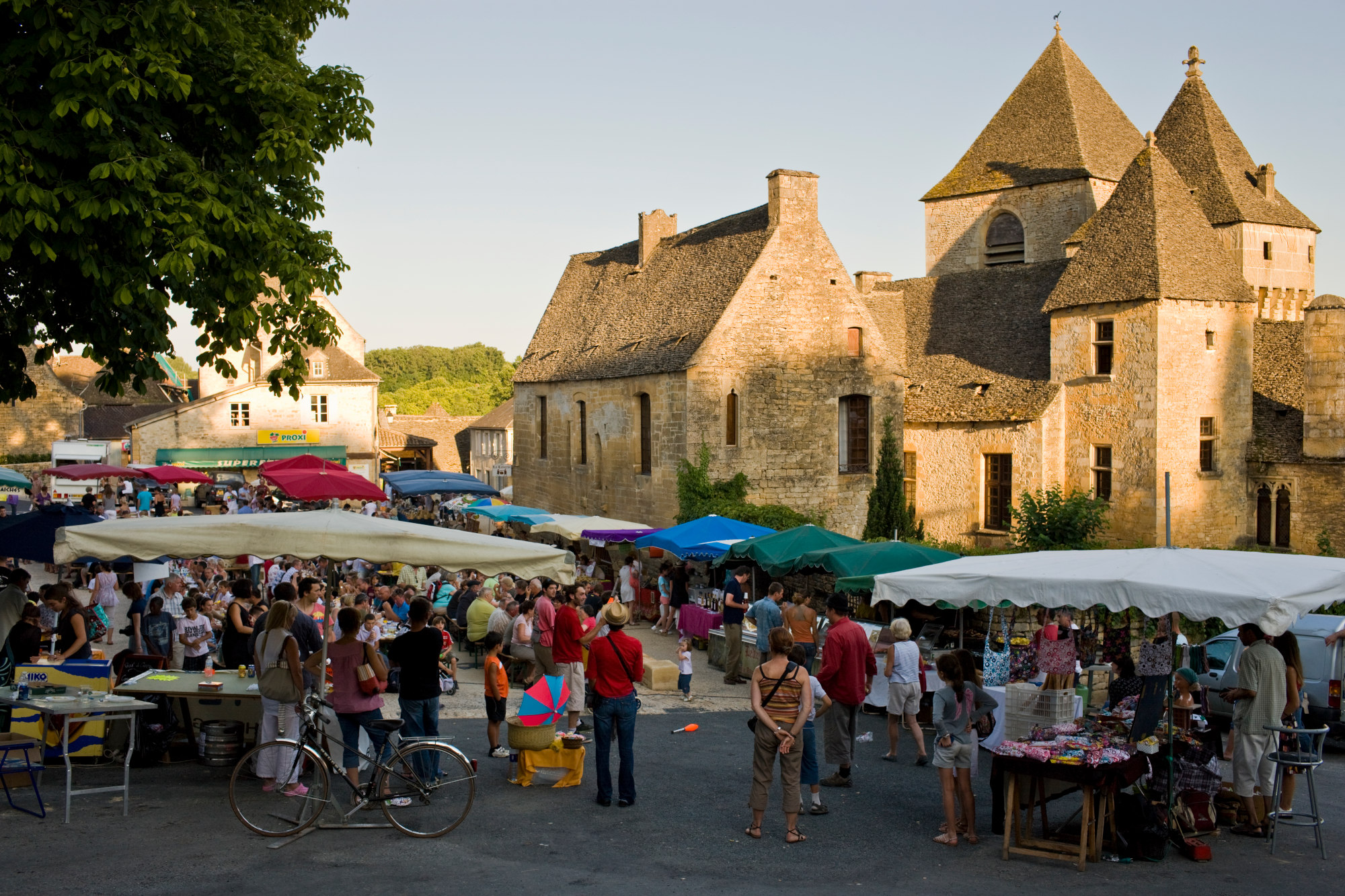France’s village fêtes are disappearing. A survey by the association Les Plus Belles Fêtes de France found that in just four years, nearly a third are no longer held. Once the highlight of rural life, they’re now falling victim to shrinking municipal budgets, falling household income, a chronic shortage of volunteers, endless administrative obstacles and rising security fears. In some places, tension between communities has turned violent. Only two summers ago, a teenager was murdered when a group of young men arrived to disrupt a fête. Elsewhere, fights break out so regularly that prefects now warn mayors to be ‘particularly vigilant’ during celebrations.
For centuries, the fête was a rare moment when the whole village came together without suspicion. Now, prefects circulate security warnings in advance of summer events
Each summer I try to make it to the village fête in our corner of Provence. The village is little more than a cluster of stone houses balanced on a rocky outcrop in the shadow of Mont Ventoux, with a small church at its heart and vineyards spilling down the slopes. Long trestle tables are set up in the square, the band plays as the sun goes down, and the menu runs to several courses with a starter, main, cheese, dessert, and plenty of wine. Grandmothers dance with children, young couples twirl under the lights, and local vignerons chat with Parisians who escape here over the summer. It is, in short, everything France gets right. And yet our mayor isn’t sure he can afford to subsidise the fête next year.
Village fêtes have always relied on the mairie, the city hall, to underwrite them: a grant for the band, a subsidy for the caterer, help with the tent rental. But local authorities are getting less money from central government and the region. Since 2014 state grants to communes have been cut by nearly €11 billion. Villages are now expected to raise more themselves, mainly through property taxes. In our village the mairie has doubled the property tax on second homes. We’re an easy political target when the owners are Parisians who only come down in August. But even these new measures may not free enough funds to guarantee next year’s fête. In many small towns, the economics are brutal: as BFMTV reports, staging even a modest fête can cost €10,000, yet the mairie’s subsidy may be barely €1,000. Fêtes are more likely to be cut than school or housing. And once a fête misses a year, the momentum goes with it.
Then there’s the problem of less money in people’s pockets. Rural families are feeling the pinch. France’s cost-of-living crisis is leaving a mark, with inflation still outpacing wage growth. In 2025, grocery prices are up nearly 20 per cent since 2020, forcing many to skip the €25 to €30 village meal. Petrol has been stubbornly above €1.90 a litre in much of rural France.
Across the country this summer, tourist spending is down, industry estimates suggesting a drop of at least ten percent. Restaurants, markets and cultural events are all reporting weaker takings. For many families, summer now means choosing between a proper holiday and a few day trips. When belts tighten, spending €25 or €30 for the fête dinner, buying raffle tickets or splashing out on another round of rosé at the buvette becomes a luxury. Even in rural areas, where traditions die slowly, the economic chill is leaving empty chairs.
These events depend on armies of unpaid helpers: people to set out tables, string up bunting, sell tickets, pour drinks, and clear up at two in the morning. That used to be easy. Retired farmers, shopkeepers, and schoolteachers would turn out in force. Now they are older, fewer, and less inclined to haul chairs in the summer heat. Younger people, if they are still in the village at all, spend weekends elsewhere. According to France Bénévolat, the number of volunteers in France fell by 15 per cent between 2019 and 2023, a loss felt most sharply in small associations that organise village events. BFMTV quotes Alexandre Hernandez, 36, who has organised the fête in Calamane for 14 years: ‘A village fête is time, money and lots of work.’ His organising committee still has 15 loyal volunteers, but he admits that if he quits, the fête will likely die.
Even when the money and volunteers can be found, there is a new obstacle: paperwork and protests. France has cultivated a thriving cottage industry of objections to fêtes. Vegan activists try to ban traditional meat-based menus. Environmental groups file appeals against fireworks over concerns for birds or noise pollution. Anti-military campaigners object to parades by the local reservists. In some departments, a single complaint can force the mayor to justify the event to the prefecture, submit a full security plan, and wait weeks for approval. Le Figaro reports cases where opponents rush to administrative court on the eve of the event, forcing organisers to cancel at the last minute. BFMTV notes that the paperwork for the prefecture, security, staffing, insurance, are all reasons organisers give up. Many mayors quietly decide that a fête is no longer worth the hassle.
The biggest change, though, is the atmosphere. For centuries, the fête was a rare moment when the whole village came together without suspicion. Now, prefects circulate security warnings in advance of summer events. Some mayors hire private guards. In certain towns, the gendarmes patrol in pairs. It isn’t paranoia. In 2023, in Crépol in the Drôme, a 16-year-old was stabbed to death when a group of young men from a nearby housing estate descended on the village fête and started a fight. The killing shocked rural France, but it wasn’t an isolated case. The same year, police in the Loire arrested eight people after a brawl at a fête involving knives and bottles. Smaller incidents are frequent – bottles thrown, knives drawn, fights.
From small villages to coastal towns, security concerns are reshaping summer traditions. The security problem is now so entrenched that some places have simply given up. In Antibes, one of the Riviera’s busiest destinations, the mairie has decided there will be no large public events at all during August. As Nice-Matin reports, Mayor Jean Leonetti admits this is deliberate policy, taken with the prefecture, to avoid overloading police during what is considered a ‘high-risk’ month. The only exception is the annual fireworks festival. Everything else is off the calendar. Once violence and security shortages become part of the calculation, the question is not just whether the mairie can afford the fête, but whether it dares to hold one.
The disappearance of the village fête is not just about losing a night of music and bad dancing. It’s the erosion of a tradition that unites a village across age, class, and politics. In our Provence village, the fête is an occasion where age and class dissolve, and everyone comes together, from farmers to newcomers, locals to summer guests. No one cares who voted for whom. Losing the village fête is part of a deeper erosion, a fraying of shared traditions. It’s the loss of intergenerational exchanges, the mixing of social classes, and the instinct to come together as a society.









Comments